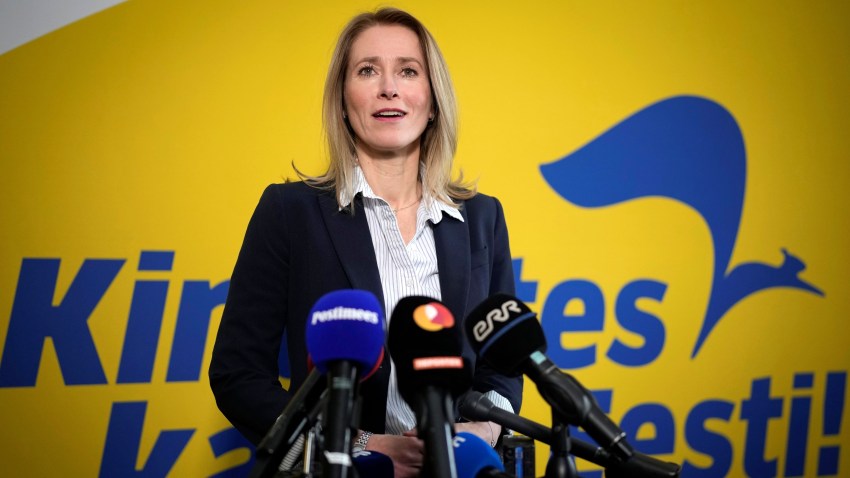Estonian Prime Minister Kaja Kallas’ center-right coalition won a landslide victory in the country’s parliamentary election on March 5, underscoring her own personal popularity as well as strong domestic support for her solidarity with Ukraine in its resistance against Russia’s invasion. That conflict was a salient part of the campaign, given Kallas’ staunch support for Kyiv and hawkishness toward Russia.
Under her leadership, Estonia—which shares a border with Russia and regained independence from the Soviet Union in 1991—has been among Ukraine’s strongest backers in the European Union and NATO, and has pushed the EU to do more to support Kyiv. Kallas’ big win was welcomed as a good sign for European solidarity and support for Ukraine, and puts her in prime position to form the Baltic country’s next government.
Kallas’ center-right Reform Party won 37 seats in the 101-member Riigikogu, Estonia’s parliament, with 31 percent of the national vote. The far-right Conservative People’s Party of Estonia, or EKRE, finished in a distant second place, picking up 17 seats on 16 percent of the vote. The center-left Centre Party, which has historically run strongest among the country’s Russian-speaking minority, came in third with approximately 15 percent of the vote and 16 seats. Other smaller parties like the liberal Estonia 200; the center-left Social Democratic Party, or SDE; and the right-wing Isamaa also gained enough votes to take seats in the next parliament.

